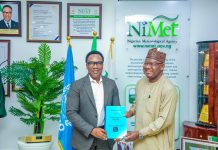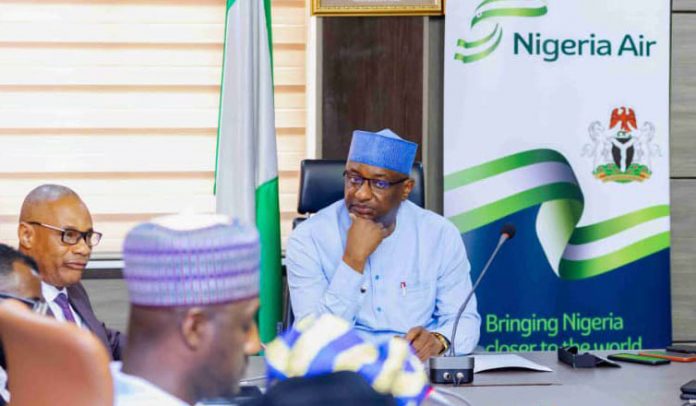When President Bola Ahmed Tinubu appointed Festus Keyamo as the Minister of Aviation and Aerospace Development, many were skeptical about his ability to navigate the complex, highly regulated, and technical aviation industry. As a prominent lawyer and public advocate with no prior experience in aviation, Keyamo was viewed as an outsider. However, one year into his tenure, he has not only defied expectations but has also emerged as a transformative leader, tackling critical challenges and laying a strong foundation for the future of Nigeria’s aviation sector.
Upon taking office, Keyamo inherited a sector grappling with multiple crises, including skyrocketing operational costs, forex illiquidity, and deteriorating infrastructure. These issues had significantly impacted both domestic and international air travel, leading to increased airfares, poor services, and a hostile environment for operators. Faced with these challenges, Keyamo wasted no time in implementing key interventions to ease the burden on both operators and travelers.
His early actions included the reopening of the renovated E-arrival Wing at the Murtala Muhammed International Airport (MMIA) in Lagos and the procurement of new scanners for five international airports. These scanners are aimed at enhancing security and ending the need for manual baggage screening by airport officials. Additionally, Keyamo oversaw the reopening of Runway 18R at Lagos Airport and relocated the headquarters of the Federal Airports Authority of Nigeria (FAAN) from Abuja to Lagos, saving the government about N1 billion annually in Duty Tour Allowance (DTA).
One of his most significant achievements was the reduction of aviation’s Internally Generated Revenue remittance to the Treasury Single Account (TSA) from 50% to 20%. This move provided aviation agencies with more revenue for operations, addressing one of the industry’s long-standing challenges. Keyamo also facilitated the payment of 45 months’ arrears owed to staff of the Nigeria Meteorological Agency (NIMET).
Keyamo has been a staunch advocate for domestic airlines, pushing for fair treatment in international markets. His efforts to restore Nigeria’s Bilateral Air Service Agreement (BASA) rights led to a breakthrough for Air Peace, which was granted reciprocal rights to fly to the UK, challenging the longstanding monopoly on the UK-Nigeria route. This was part of a broader strategy to ensure that Nigerian airlines have equal opportunities to compete with international carriers.
Captain Ibrahim Mshelia, CEO of West Link Airlines, praised Keyamo’s bold stance, particularly his push for Air Peace to gain access to London Heathrow Airport, as opposed to the less favorable Gatwick Airport. This advocacy highlights Keyamo’s commitment to ensuring that Nigerian airlines operate on a level playing field with their international counterparts.
Keyamo’s leadership also extended to protecting the interests of Nigerian carriers by halting the controversial Nigeria Air project. The proposed national carrier, with a significant stake owned by Ethiopian Airlines, faced opposition for potentially undermining local operators. Keyamo’s decision to suspend its pursuit of an Air Operators Certificate (AOC) was later upheld by the judiciary, marking a significant victory for the minister’s focus on protecting domestic aviation interests.
In his first year, Keyamo has made substantial progress in improving Nigeria’s airport infrastructure. He resolved the longstanding land dispute that had stalled the Abuja second runway project, clearing the way for construction to begin. Additionally, he ordered the relocation of all international airlines to the new Lagos terminal, making it fully operational. These actions have not only improved the efficiency of Nigeria’s airports but have also enhanced the overall travel experience for passengers.
Under his watch, the reactivation of Lagos’ second runway, which had been out of service for two years, restored full operational capacity to Nigeria’s busiest airport. Keyamo also worked closely with the Central Bank of Nigeria to resolve the issue of trapped funds for foreign airlines, a move that restored confidence in Nigeria’s aviation sector and reaffirmed the country’s commitment to honoring its international obligations. This resolution also led to the reinstatement of Dubai visa issuance for Nigerians and the return of Emirates’ Nigeria-UAE flights.
Keyamo’s tenure has been marked by a firm stand against corruption and misconduct in the aviation sector. His crackdown on illegal private charters, drug trafficking, and revenue loss has garnered widespread recognition. He established an 8-man task force to address these issues, which has already identified high-net-worth individuals and foreign-registered aircraft involved in illegal activities.
As Keyamo celebrates his first year in office, it is evident that his appointment was one of the most astute decisions of the Tinubu administration. His leadership has been characterized by bold decisions, strategic interventions, and a commitment to transforming Nigeria’s aviation industry. His focus is not just on fixing immediate problems but on building a legacy of excellence that will endure long after he has left office.
Keyamo’s ongoing efforts to establish a standard maintenance, repair, and overhaul (MRO) facility for wide-body aircraft in Nigeria are poised to be a game-changer, reducing reliance on foreign facilities and cutting costs for airlines. His approach to governance—challenging the status quo, pushing for innovation, and prioritizing the interests of Nigerian carriers—has set a new standard for leadership in the aviation sector.
In just one year, Festus Keyamo has laid the groundwork for a transformative tenure. His achievements have not only addressed some of the industry’s most pressing challenges but have also positioned Nigeria’s aviation sector for future growth and success. With Keyamo at the helm, the sector is set to soar to new heights, cementing its place on the global stage.













